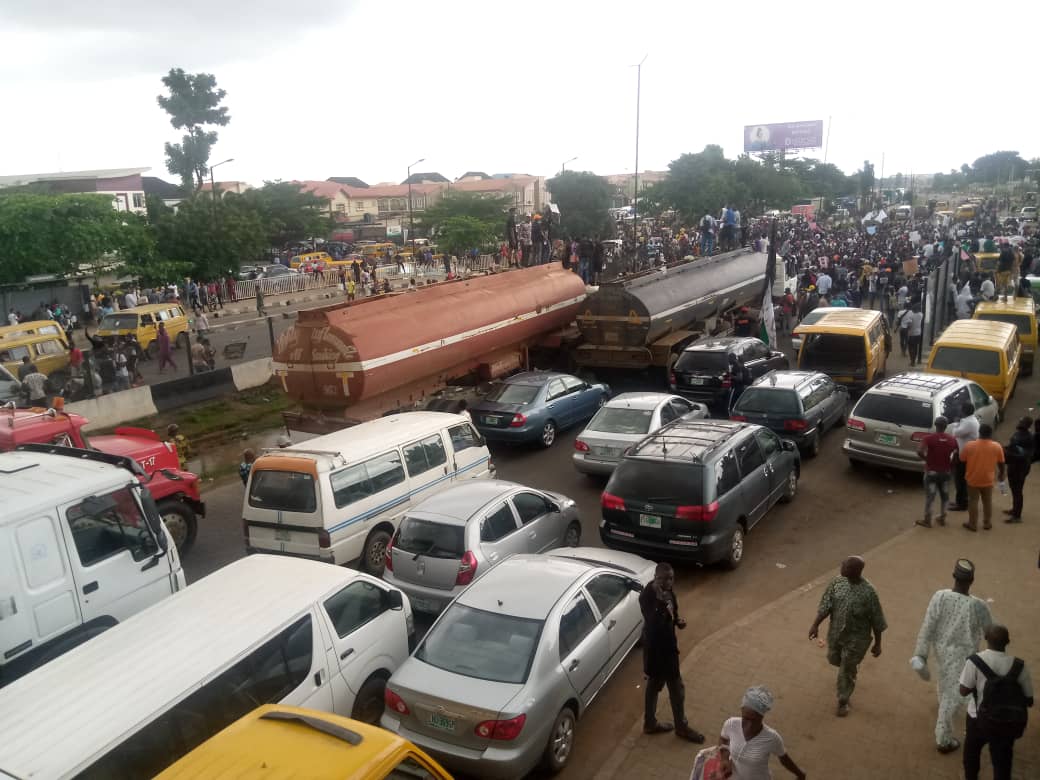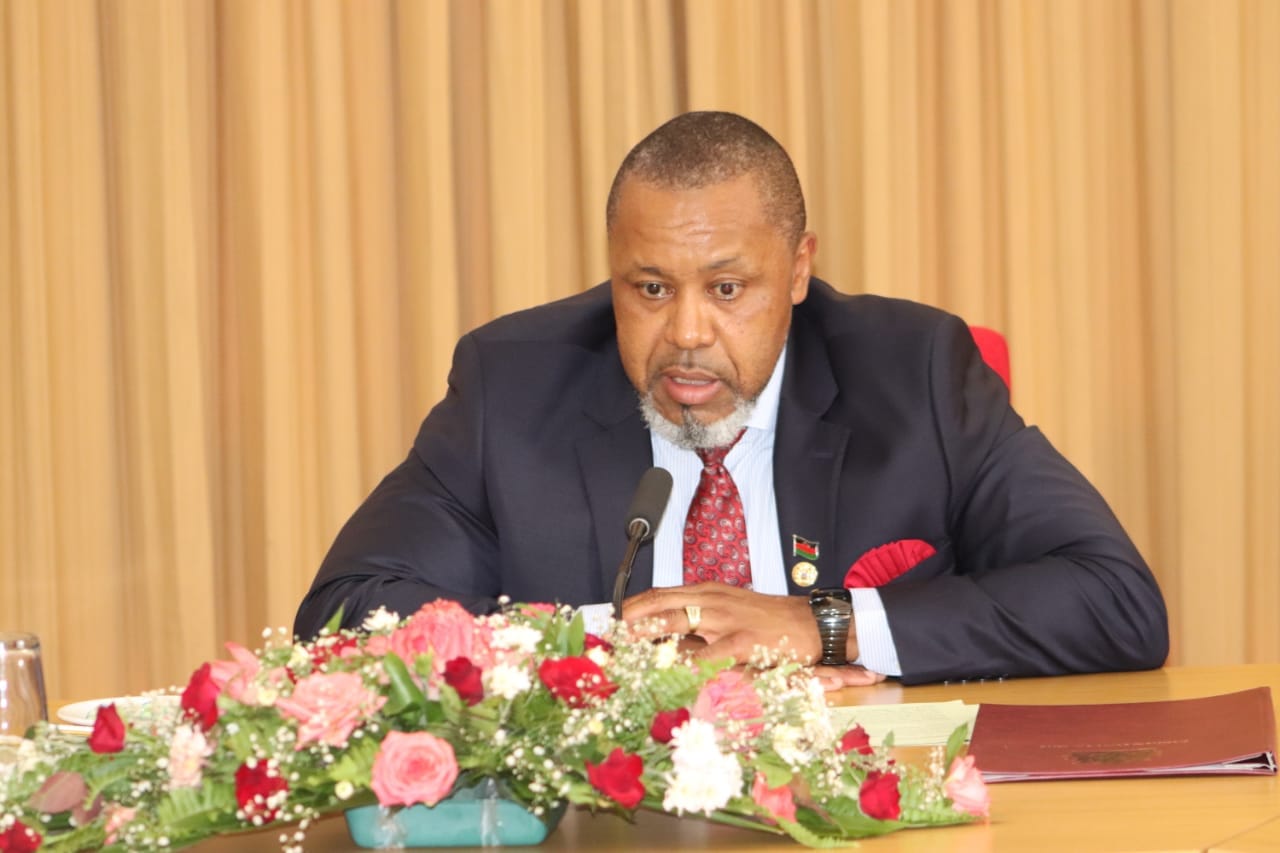BY DANIEL NWUZOR
Call it a piece of serendipity on a day that left barely any room for optimism. I boarded a Lagos-bound bus at a park in Enugu fully aware of the harrowing experience that lay ahead as a result of the gridlock caused by the unending rehabilitation of the Lagos-Ibadan expressway.
The situation had been worsened by students protesting the long closure of universities arising from the strike embarked on by the Academic Staff Union of Universities (ASUU). They began the protest a day before my trip, enforcing their threat to block this all-important carriageway. The students’ resolve was grittier on the day of the trip, with the traffic stretching as far as Shagamu.
It was no exaggeration: for hours, we barely moved beyond 10 metres. In frustration, a few motorists began to make a u-turn, heading back in the opposite direction. It soon emerged that they were heading towards the Ijebu Ode-Epe expressway, originally conceived as a bypass connecting Ijebu Ode in Ogun State to Lagos, through Epe on its south-eastern fringe, the 14-kilometre Ijebu Ode-Epe road, but long abandoned due to its horrendous condition.
Advertisement
No one in our bus however objected when the driver reversed and made a beeline for that alternative route. It was just as well that there was no protest, for the once abandoned road had now been reconstructed into a 10-lane dual-carriageway by the Governor Dapo Abiodun administration, giving it a makeover truly befitting of an “expressway”.
In under thirty minutes, we were already in Lagos and, not long after, in Ajah – my actual destination. It was a pleasant surprise. The reconstruction of the Ijebu Ode-Epe expressway means many long-haul commercial bus operators have added Ajah as a terminus or departure point, to their list of existing locations such as Jibowu and Mile 2.
For me, it couldn’t be more convenient, especially since I discovered a commercial fleet in Enugu with specific buses that ply that route.
Advertisement
Although classified as a federal road, the Ijebu Ode-Epe expressway has hardly experienced any federal government-funded intervention for years, possibly decades. This fact makes Governor Abiodun’s reconstruction of the road even more compelling. As I have since learnt, he has similarly fixed several other federal roads across Ogun State, swayed by the knowledge that while those roads may be classified as “federal”, the brunt of their deplorable conditions is mostly borne by residents of the state.
Indeed, the flak too, ironically, is directed at the governor – not the federal government that receives the lion’s share of the federation accounts’ disbursement on the basis of its huge obligations, among which is fixing federal roads.
Could this knowledge that governors are often compelled to fix “federal roads” in their states be the reason the federal government tends to be indifferent on the matter? The answer would only be conjectural, but there’s no doubt that notions of the federal government’s indifference are further fueled by President Muhammadu Buhari’s statement that his administration will no longer refund expenses incurred by states in fixing federal roads. The impact of this ill-advised policy will be particularly sever in Ogun, which is reputedly the state with the most federal roads in Nigeria.
Indeed, in reconstructing the Ijebu Ode-Epe expressway, Governor Abiodun was primarily motivated by the new lease of life it would bring to residents in that axis. But he was buoyed, no less, by the bigger socio-economic picture. For long, the debate about how Ogun State has maximized the benefits of being contiguous to Lagos has mostly yielded unflattering verdicts. I have been seeing many concrete evidence to believe the governor considers that an imperative. This includes the flag-off of the Ogun State’s multi-modal transportation masterplan launched early this year.
Advertisement
The multi-modal transportation masterplan incorporates road, rail, water, and air transport components. The vision is to create an interface in a way that each transport mode doesn’t just exist in isolation, but complement one another in a somewhat unbroken chain for both intra- and inter-state commute. With regard to rail transport, Ogun State has leveraged the benefits of its proximity to Lagos to strike an agreement that would see the ongoing rail project developed by the latter extended to the former.
Essentially, the 37-kilometre Red Line (scheduled for completion in December this year) which runs from Marina, in Lagos, would extend to Ijoko and Kajola, both boundary communities in Ogun State’s Ifo Local Government Area. This agreement also yielded an extension of the 27.5-kilometre Blue Line rail project that runs from Marina through Okokomaiko, a high-density community on the outskirts of Lagos, down to Agbara, an industrial cluster in Ogun State.
So, as long envisaged, people who work in Lagos may well reside in Ogun State, rest assured that their daily commute will be smooth and on schedule. But sustained investments in infrastructure and large scale industrial expansion may, indeed, be flipping this economic migratory pattern. There now exist in Ogun State an increasing number of capital projects with the sort of inherent pull factors that made Lagos an economic powerhouse. A recent example was the groundbreaking of the premier site of Nigeria’s Special Agro-Industrial Processing Zone. The project is fittingly sited within the precincts of the nearly-complete Ogun State Agro-Cargo International Airport, principally conceived as an export and import hub for cargo.
On completion, the airport is expected to further stimulate economic activities in Ogun State and the entire South-West region. Governor Abiodun is confident that the agro-cargo airport will create a minimum of 25,000 jobs in the first 18 months of operation. These are not mere optimistic projections; they are clearly rooted in data. Indeed, data from the National Bureau of Statistics outlining sectoral contribution to Nigeria’s economy has repeatedly shown that agriculture makes the most significant contribution to Nigeria’s GDP. For instance, the NBS report for 2021 puts agriculture’s contribution to the country’s GDP at 29.9%, with a 1.22% year-on-year growth. Oil and gas, on the other hand, was listed as fifth with 7.49% contribution, representing a -10.7% negative growth.
Advertisement
The Ogun State governor’s investments in critical infrastructure to bolster socio-economic growth has actually yielded so many positive outcomes. This is particularly evident with regard to IGR, where a National Bureau of Statistics’ data for 2021 lists Ogun State as having the country’s fourth highest after Lagos, the Federal Capital Territory and Rivers. It also reflects in the state’s GDP size, ranked eight behind Lagos and, understandably, mostly oil-producing states.
Even at the height of the Covid-19 pandemic in 2020, Ogun State was one of only 10 states that attracted foreign investments, according to the NBS.
Advertisement
Indeed, Governor Abiodun’s efforts to industrialize the state received a strong validation when President Muhammadu Buhari conferred him with the Distinguished Award for Industrial Revolution during the Excellence in Public Service Awards ceremony at the Presidential Villa held in Abuja, in October.
So, it’s not flattery when Nigeria’s communications and digital economy minister, Dr. Isa Ali Pantami, said Ogun State is on the cusp of becoming “Nigeria’s Silicon Valley”. Through his works, Governor Abiodun sufficiently demonstrates that there is no better response to cynicism than good governance.
Advertisement
Nwuzo, a documentarist, wrote from Enugu.
Advertisement






